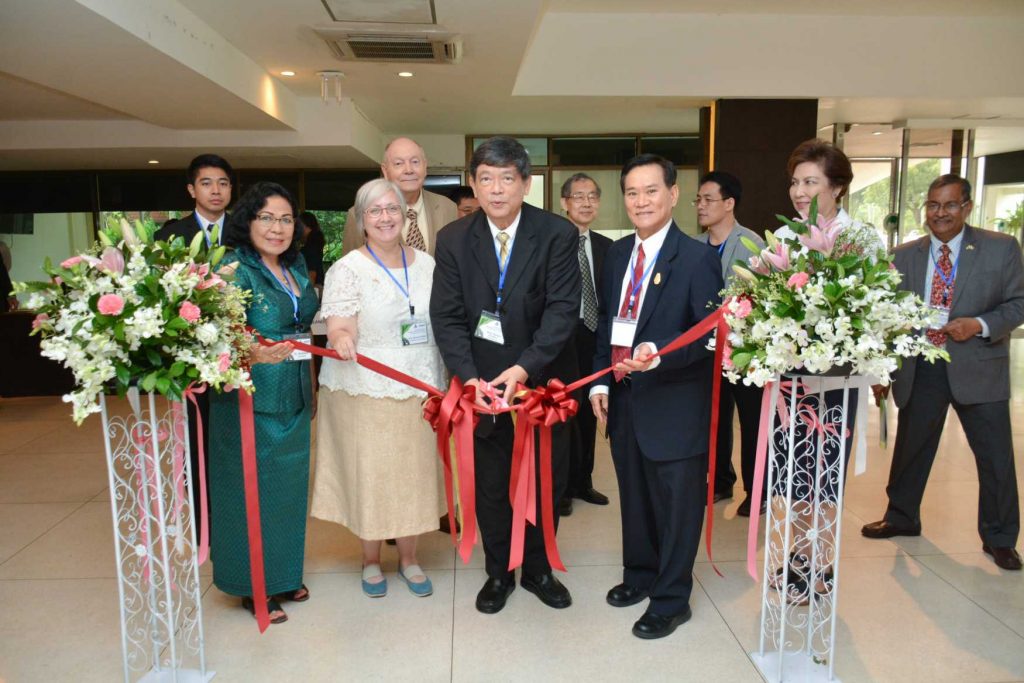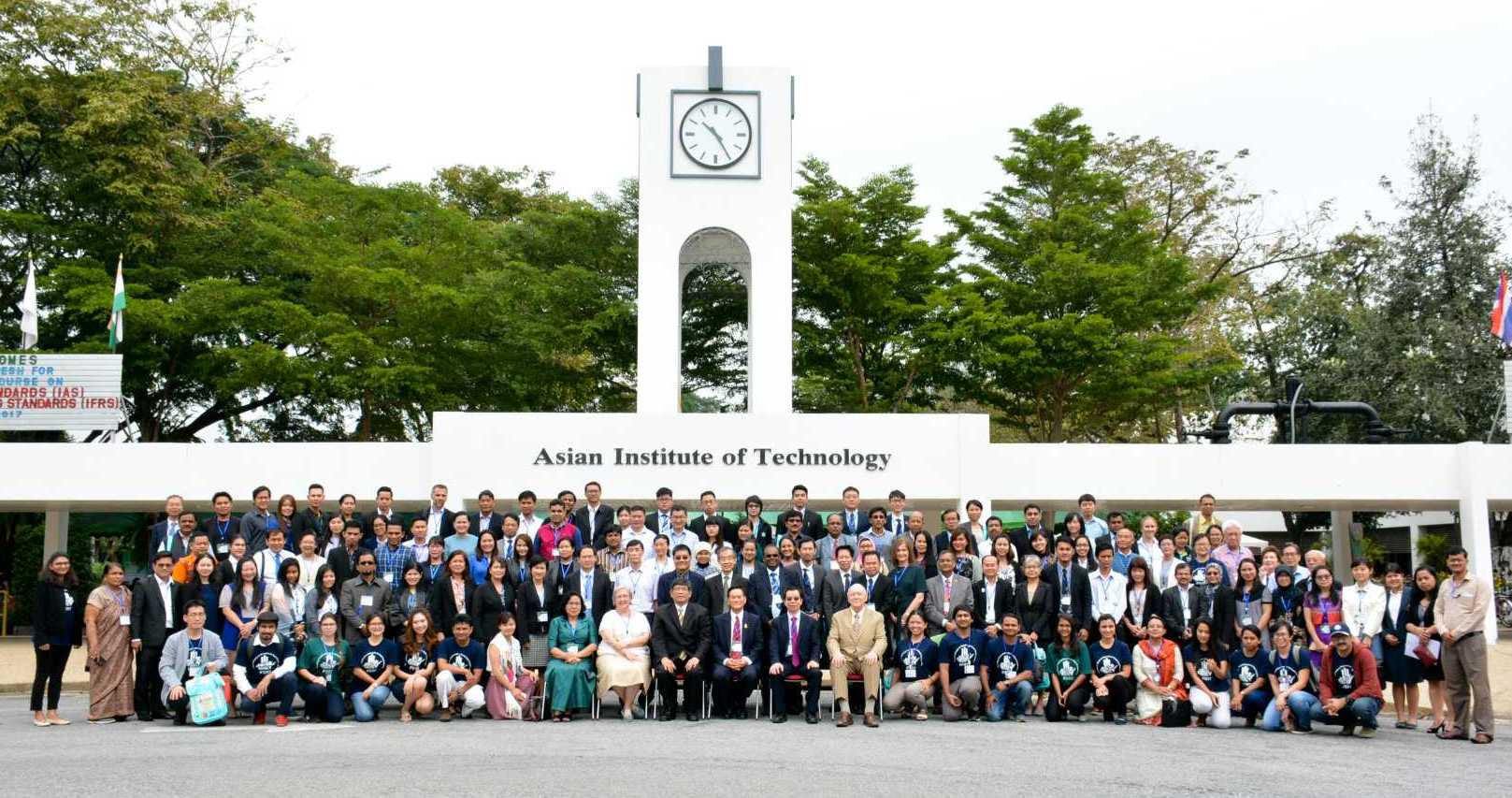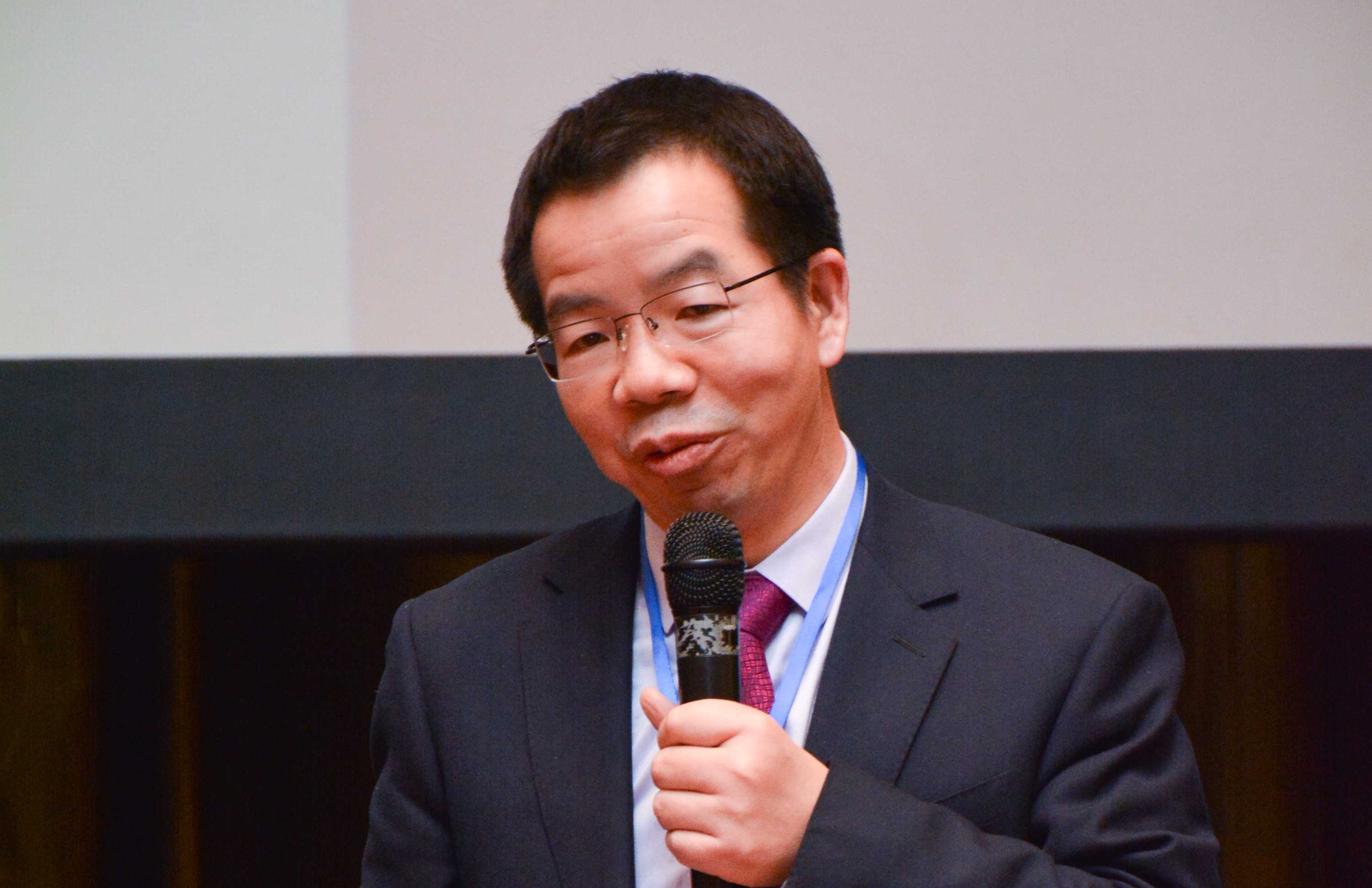With the ASEAN Socio-Cultural Community (ASCC) focusing on people-centered sustainable development, the Asian Institute of Technology (AIT) availed of the opportunity to host a three-day forum that deliberated on the use of education for the purpose of rural transformation. Titled the "International Forum on Education for Rural Transformation" (IFERT), the event addressed regional and global issues, and shared information and outcomes among participants.
In her welcome message that was read out at the inaugural session, HRH Princess Maha Chakri Sirindhorn mentioned that Thailand had achieved almost all goals and indicators of the Millennium Development Goals (MDGs). The Princess extended her best wishes for the grand success of the forum, and suggested that the outcomes of the forum should be shared globally.

Inauguration of Exhibition at International Forum on Education for Rural Transformation (IFERT).
Delivering his welcome speech AIT President Prof. Worsak Kanok-Nukulchai remarked that globalization has provided AT with many blue-ocean opportunities, and that the international demand for globally responsible citizens has reinforced the role of AIT. “Education for Rural Transformation is an excellent theme in light of the present socioeconomic situation of Asian countries,” Prof. Worsak added.
Mr. Ma Chao, Third Secretary, Embassy of People’s Republic of China, while delivering his welcome remarks stated that he came from a rural background, adding that his story is an example of education for rural transformation.
Director of UNESCO International Research and Training Centre for Rural Education (INRULED), Prof. Huang Ronghuai quoted the example of major successes achieved by the People’s Republic of China in eradication of poverty. Poverty levels have come down from 95 per cent in 1960 to 50 per cent in 2000, and to 5 per cent in 2015., he said. Tracing the expansion of multimedia classrooms in primary and junior high schools in China, Prof. Huang presented an assessment framework for ICT in education. Stressing the need to learn from experience of integration of Information and Communication Technologies (ICT) in rural education in China, he presented the status of ICT in education in the Belt and Road initiative countries. He also elaborated on the technology models under the Modern Distance Education Project for the Rural Schools (MDEPRS) in China which included establishing 110,000 CD-DVD equipped teaching centers for remote mini schools, building 384,000 satellite-receiving stations for rural primary schools, and 375,000 computer classrooms for rural secondary schools.
Former Deputy Prime Minister of Thailand, Dr. Sahas Bunditkul and Ambassador of Canada to Thailand, H.E. Ms Donica Pottie inaugurated the IFERT exhibition. The Institute for Small & Medium Enterprises Development (ISMED) also organized display and sale of One Tambon One Product (OTOP) products.
Keynote speeches were delivered by Prof. Vinayagum Chinapah of Institute of International Education, Department of Education, Stockholm University, Sweden; Dr. Suleeporn Bunbongkarn Choopavang, Director of Foreign Affairs Department, Chaipattana Foundation; and Dr. Ryo Kohsaka of Graduate School of Environmental Studies, Tohuku University. Lead speakers included Prof. Wu Bozhi of Yunnan Agricultural University; Dr. Shamimur Rahman of Grameen Bank, Bangladesh; Dr. Brahmanand Mohanty, Prof. Jayant Kumar Routray, Dr. Thammarat Koottatep and Dr. P Abdul Salam of AIT.
According to Prof. Jayant Kumar Routray, Chair of the IFERT technical committee, the event was co-organized by AIT and UNESCO INRULED, and it was sponsored by ASEAN Secretariat through support from the ASEAN China Cooperation Funds (ACCF).

Participants at the International Forum on Education for Rural Transformation (IFERT).

